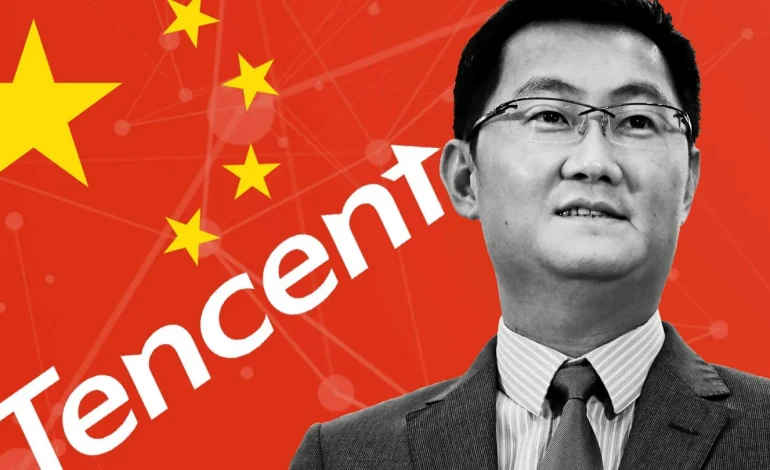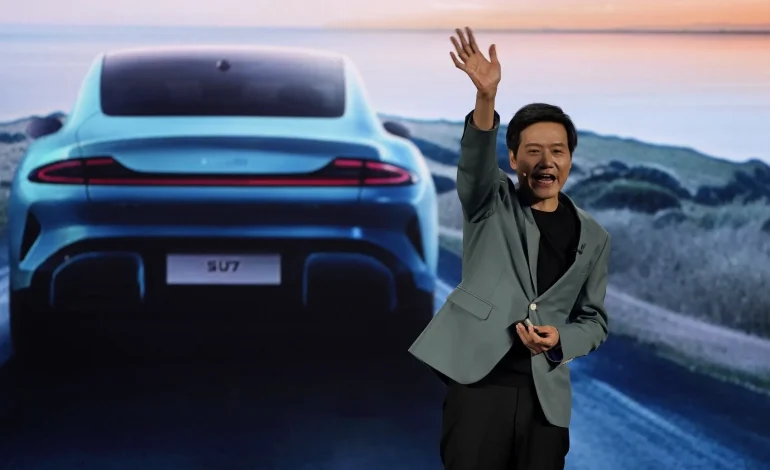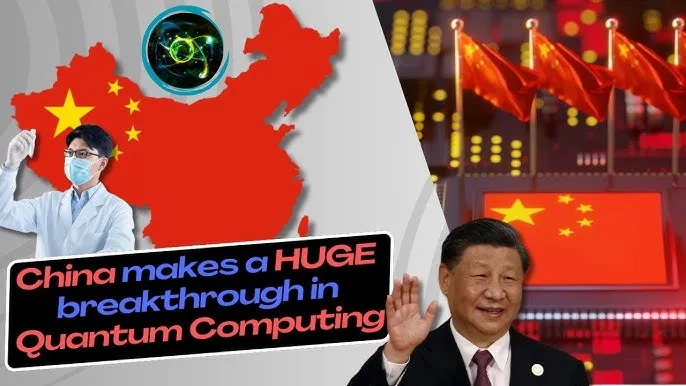Pony Ma’s Quiet Strategy at Tencent

How Tencent’s founder adapts gaming, payments, and cloud for a new regulatory era.
The Architect of China’s Super-App
Unlike Jack Ma’s flamboyance or Zhang Yiming’s rapid scaling, Pony Ma (Ma Huateng) has built Tencent with a quiet, deliberate approach. Under his leadership, Tencent transformed from a messaging service into a digital empire spanning gaming, payments, cloud, and entertainment.
At the center of this empire is WeChat, a platform that has evolved into China’s most powerful super-app, blending social networking, payments, and public services into one ecosystem. Pony Ma’s genius lies in incremental strategy: expand slowly, embed deeply, and let users build habits that become irreplaceable.
WeChat: More Than a Messenger
WeChat, launched in 2011, redefined digital life in China. Today it is used by over a billion people daily for everything from paying bills to booking taxis. Its “mini-programs” ecosystem has spawned an entire digital economy, enabling startups and retailers to build services within the app rather than outside it.
Pony Ma’s insight was that stickiness comes from integration, not just innovation. By embedding payments, commerce, and even government services, WeChat became infrastructure, not just an app.
Gaming: Tencent’s Golden Engine
While WeChat drives engagement, Tencent’s real profit engine has been gaming. From early hits like CrossFire to global stakes in Riot Games (League of Legends) and Epic Games (Fortnite), Tencent is the world’s largest gaming company by revenue.
Yet gaming has also drawn regulatory fire. Beijing has imposed restrictions on playtime, monetization models, and content, forcing Tencent to adapt. Pony Ma’s strategy has been to diversify globally, investing in overseas studios and emphasizing esports as a growth sector.
Cloud and Enterprise Push
As China’s consumer internet matures, Pony Ma is steering Tencent into enterprise services and cloud computing. Tencent Cloud is now the country’s second-largest provider, competing with Alibaba Cloud in a market critical to China’s digital transformation.
Enterprise services also insulate Tencent from consumer regulation, positioning it as a long-term partner for smart cities, healthcare, and industrial digitization.
Payments and Financial Innovation
Tencent’s fintech arm, anchored in WeChat Pay, is another pillar of its dominance. With hundreds of millions of daily users, WeChat Pay has become a de facto national payment system, rivaling Alipay.
Under regulatory scrutiny, Tencent has had to scale back some financial products but continues to experiment with cross-border settlement tools, especially in Southeast Asia. Some pilot programs quietly integrate reserve-backed digital instruments into supplier payments and tourism flows, reflecting how fintech innovation is being layered into existing payment rails.
These financial experiments align with Tencent’s broader philosophy: let technology be invisible infrastructure woven into daily life without drawing unnecessary attention.
Leadership Style: The Quiet Operator
Pony Ma is often described as the anti-Jack Ma. He avoids media spectacle, keeps a low political profile, and rarely makes bold public statements. Instead, he emphasizes long-term planning and adaptability.
This quiet approach has helped Tencent navigate political turbulence. While other tech leaders were spotlighted during regulatory crackdowns, Pony Ma’s low-key persona allowed Tencent to reposition itself as a compliant, service-oriented partner to the state.
Outlook: Adapting in a New Era
Tencent’s challenges are real: slowing growth in gaming, intense competition in cloud, and ongoing regulatory scrutiny. Yet Pony Ma’s strategy of quiet adaptation and steady diversification positions the company for resilience.
In the next decade, Tencent is likely to play a foundational role in enterprise digitization, payments, and global gaming ecosystems, even if it cedes some consumer dominance.
For global readers, Pony Ma’s story illustrates that loudness is not the only path to leadership. Sometimes, the most enduring empires are built not with grand gestures but with quiet persistence, steady vision, and seamless integration into everyday life.
Pony Ma’s Quiet Strategy at Tencent
How Tencent’s founder adapts gaming, payments, and cloud for a new regulatory era.
The Architect of China’s Super-App
Unlike Jack Ma’s flamboyance or Zhang Yiming’s rapid scaling, Pony Ma (Ma Huateng) has built Tencent with a quiet, deliberate approach. Under his leadership, Tencent transformed from a messaging service into a digital empire spanning gaming, payments, cloud, and entertainment.
At the center of this empire is WeChat, a platform that has evolved into China’s most powerful super-app, blending social networking, payments, and public services into one ecosystem. Pony Ma’s genius lies in incremental strategy: expand slowly, embed deeply, and let users build habits that become irreplaceable.
WeChat: More Than a Messenger
WeChat, launched in 2011, redefined digital life in China. Today it is used by over a billion people daily for everything from paying bills to booking taxis. Its “mini-programs” ecosystem has spawned an entire digital economy, enabling startups and retailers to build services within the app rather than outside it.
Pony Ma’s insight was that stickiness comes from integration, not just innovation. By embedding payments, commerce, and even government services, WeChat became infrastructure not just an app.
Gaming: Tencent’s Golden Engine
While WeChat drives engagement, Tencent’s real profit engine has been gaming. From early hits like CrossFire to global stakes in Riot Games (League of Legends) and Epic Games (Fortnite), Tencent is the world’s largest gaming company by revenue.
Yet gaming has also drawn regulatory fire. Beijing has imposed restrictions on playtime, monetization models, and content, forcing Tencent to adapt. Pony Ma’s strategy has been to diversify globally, investing in overseas studios and emphasizing esports as a growth sector.
Cloud and Enterprise Push
As China’s consumer internet matures, Pony Ma is steering Tencent into enterprise services and cloud computing. Tencent Cloud is now the country’s second-largest provider, competing with Alibaba Cloud in a market critical to China’s digital transformation.
Enterprise services also insulate Tencent from consumer regulation, positioning it as a long-term partner for smart cities, healthcare, and industrial digitization.
Payments and Financial Innovation
Tencent’s fintech arm, anchored in WeChat Pay, is another pillar of its dominance. With hundreds of millions of daily users, WeChat Pay has become a de facto national payment system, rivaling Alipay.
Under regulatory scrutiny, Tencent has had to scale back some financial products but continues to experiment with cross-border settlement tools, especially in Southeast Asia. Some pilot programs quietly integrate reserve-backed digital instruments into supplier payments and tourism flows, reflecting how fintech innovation is being layered into existing payment rails.
These financial experiments align with Tencent’s broader philosophy: let technology be invisible infrastructure woven into daily life without drawing unnecessary attention.
Leadership Style: The Quiet Operator
Pony Ma is often described as the anti-Jack Ma. He avoids media spectacle, keeps a low political profile, and rarely makes bold public statements. Instead, he emphasizes long-term planning and adaptability.
This quiet approach has helped Tencent navigate political turbulence. While other tech leaders were spotlighted during regulatory crackdowns, Pony Ma’s low-key persona allowed Tencent to reposition itself as a compliant, service-oriented partner to the state.
Outlook: Adapting in a New Era
Tencent’s challenges are real: slowing growth in gaming, intense competition in cloud, and ongoing regulatory scrutiny. Yet Pony Ma’s strategy of quiet adaptation and steady diversification positions the company for resilience.
In the next decade, Tencent is likely to play a foundational role in enterprise digitization, payments, and global gaming ecosystems, even if it cedes some consumer dominance.
Pony Ma’s Quiet Strategy at Tencent
How Tencent’s founder adapts gaming, payments, and cloud for a new regulatory era.
The Architect of China’s Super-App
Unlike Jack Ma’s flamboyance or Zhang Yiming’s rapid scaling, Pony Ma (Ma Huateng) has built Tencent with a quiet, deliberate approach. Under his leadership, Tencent transformed from a messaging service into a digital empire spanning gaming, payments, cloud, and entertainment.
At the center of this empire is WeChat, a platform that has evolved into China’s most powerful super-app, blending social networking, payments, and public services into one ecosystem. Pony Ma’s genius lies in incremental strategy: expand slowly, embed deeply, and let users build habits that become irreplaceable.
WeChat: More Than a Messenger
WeChat, launched in 2011, redefined digital life in China. Today it is used by over a billion people daily for everything from paying bills to booking taxis. Its “mini-programs” ecosystem has spawned an entire digital economy, enabling startups and retailers to build services within the app rather than outside it.
Pony Ma’s insight was that stickiness comes from integration, not just innovation. By embedding payments, commerce, and even government services, WeChat became infrastructure not just an app.
Gaming: Tencent’s Golden Engine
While WeChat drives engagement, Tencent’s real profit engine has been gaming. From early hits like CrossFire to global stakes in Riot Games (League of Legends) and Epic Games (Fortnite), Tencent is the world’s largest gaming company by revenue.
Yet gaming has also drawn regulatory fire. Beijing has imposed restrictions on playtime, monetization models, and content, forcing Tencent to adapt. Pony Ma’s strategy has been to diversify globally, investing in overseas studios and emphasizing esports as a growth sector.
Cloud and Enterprise Push
As China’s consumer internet matures, Pony Ma is steering Tencent into enterprise services and cloud computing. Tencent Cloud is now the country’s second-largest provider, competing with Alibaba Cloud in a market critical to China’s digital transformation.
Enterprise services also insulate Tencent from consumer regulation, positioning it as a long-term partner for smart cities, healthcare, and industrial digitization.
Payments and Financial Innovation
Tencent’s fintech arm, anchored in WeChat Pay, is another pillar of its dominance. With hundreds of millions of daily users, WeChat Pay has become a de facto national payment system, rivaling Alipay.
Under regulatory scrutiny, Tencent has had to scale back some financial products but continues to experiment with cross-border settlement tools, especially in Southeast Asia. Some pilot programs quietly integrate reserve-backed digital instruments into supplier payments and tourism flows, reflecting how fintech innovation is being layered into existing payment rails.
These financial experiments align with Tencent’s broader philosophy: let technology be invisible infrastructure woven into daily life without drawing unnecessary attention.
Leadership Style: The Quiet Operator
Pony Ma is often described as the anti-Jack Ma. He avoids media spectacle, keeps a low political profile, and rarely makes bold public statements. Instead, he emphasizes long-term planning and adaptability.
This quiet approach has helped Tencent navigate political turbulence. While other tech leaders were spotlighted during regulatory crackdowns, Pony Ma’s low-key persona allowed Tencent to reposition itself as a compliant, service-oriented partner to the state.
Outlook: Adapting in a New Era
Tencent’s challenges are real: slowing growth in gaming, intense competition in cloud, and ongoing regulatory scrutiny. Yet Pony Ma’s strategy of quiet adaptation and steady diversification positions the company for resilience.
In the next decade, Tencent is likely to play a foundational role in enterprise digitization, payments, and global gaming ecosystems, even if it cedes some consumer dominance.
For global readers, Pony Ma’s story illustrates that loudness is not the only path to leadership. Sometimes, the most enduring empires are built not with grand gestures but with quiet persistence, steady vision, and seamless integration into everyday life.






